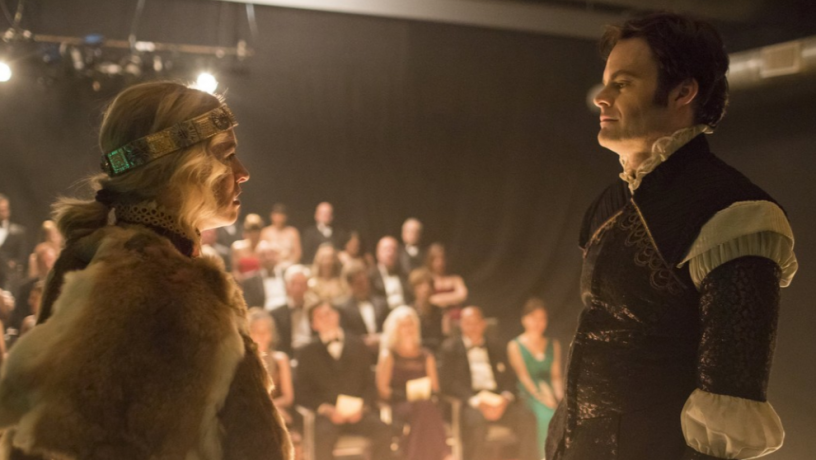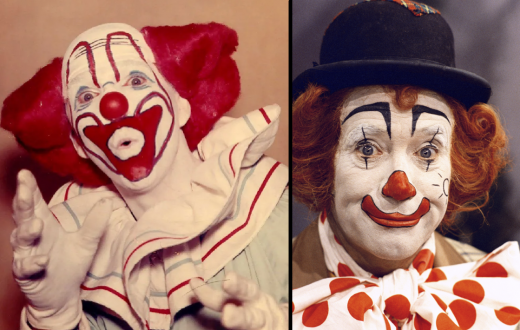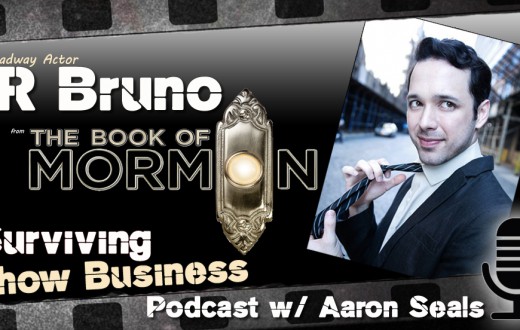“I’ll always be there because I’m a skilled professional actor. Whether or not I’ve any talent is beside the point.” – Michael Caine
Does everyone remember when they booked their first paying gig? It’s truly an amazing feeling – whether you’re dressing up as a princess for a kid’s party, planted firmly at the back of a crowd scene in a low-budget movie or singing your guts out in the chorus of a musical, depositing that first acting paycheck is a wonderful milestone: you feel like “I’ve made it.”
But sometimes younger actors run the risk of thinking that because they’ve graduated from theater school and booked a little work that their education is over. Nothing could be further from the truth, at least not for a successful actor.
And nothing could be a worse way to self-sabotage your career before you really even get it started.
Ongoing classes are vital to developing an actor’s toolkit. In truth, most actors would benefit from continuing to take one sort of class or another pretty much for the rest of their lives. But with the myriad of classes out there – not to mention the cost – what’s the right one for you, right now? Here are a few of the options, and some considerations for when and who might be right to take each one.
-
Scene Study
This class is going to be the basis for all the acting work you do the rest of your life, so it’s likely the best place to start your post-university acting education. The great thing about scene study is that it’s never-ending: there are always other scenes, other characters to read, other scene partners to work with. And working a scene study class with a talented instructor can really open your mind in terms of new ways to approach characters and scenes. Here too is where you really get a chance to work on that most important of acting skills: listening. In a good scene study class you’ll develop the kind of on screen/on stage empathy that allows you to truly blossom as an actor and react naturally to what you’re given rather than just waiting for your turn to speak.
“I think getting in to a scene study class is important,” said actor Chris Browning (3:10 to Yuma, Book of Eli) in a recent conversation. “That’s where I got the most help as an actor. Just being in a scene and listening to somebody and listening to different ways of saying the lines and doing that back and forth gives you the improvisation that you need. You can play with the dialogue. That’s what I got the most out of.”
And although you usually have some opportunity to explore characters and your scenes in the way Browning describes when you’re on set or in rehearsals with a good director, the other great thing about doing it in a scene study class is that such exploration isn’t on any kind of a clock. You’re free to really dig into a scene and try it out in a variety of ways because there’s no pressure to get the shot or get the scene locked in. In fact, a scene study class shouldn’t be viewed as a burden or something you HAVE to do; what could be more fun for an actor than to have the chance every week to simply play?
Like Browning said, in a scene study class you will organically get a chance to develop your improvisation skills as you do scenes with your classmates and work on listening to what you’re given. However, a good class geared specifically toward learning improv can really make a difference in how you practice your craft. Some actors deride improvisation groups and improv in general as somehow beneath them as “serious actors.” But some of our most successful and beloved stars today came from a background in improv: Amy Poehler, Bill Murray, Stephen Colbert and Steve Carell to name just a few all started out in various comedy/improv troupes. Steve Carell in particular is instructive on this front. While we likely think of him as the funny, goofy guy improvising in The Office or Anchorman, he’s also developed into a top-notch dramatic actor. Studying improv doesn’t mean you’re limited to performing with your buddy’s improv team Whoopee Pushin’ or Three-Ring Andy Circus the rest of your life. The skills you take away from improvising can be applied to every facet of your acting and lend your characters depth.
The other great thing about improv is you learn how to think on your feet. There are so many millions of tiny moments in film and on stage that happened by accident because the actors involved were paying attention. Internally at least, they said “yes, and…” and plowed through, creating magic moments that no scriptwriter or director ever imagined beforehand. And more and more casting directors and directors ask actors to improvise something at some point in the audition process. The more practice you have doing it, the more relaxed you’ll be and able to open yourself up to new possibilities for your characters and scenes.
-
Technique
Many younger actors might think, “Oh yeah, I learned about Meisner and Strasberg in school, so I won’t need that type of class.” But as with almost everything related to acting, you can always go deeper. While your university instructors no doubt are themselves dedicated professionals and gave you some valuable instruction on these skills, the thing is you can delve so much further than a twice-weekly, one semester class can allow. With a skilled instructor, what you learn about yourself and your acting in these classes – how to listen, how to allow yourself to be vulnerable, and how to get rid of self-consciousness, for instance – will translate immediately into better, freer and likely more successful auditions.
While we’re on the subject of auditioning, taking an on-camera auditioning class is a really good idea. Especially for younger actors just out of school who haven’t had that many opportunities to read for a filmed audition, these classes can be invaluable in providing techniques, details and nuances that will sharpen your auditions. The other thing on-camera audition classes give you is the chance to practice reading for the camera without the pressure of trying to book a job. As with anything, the more you do it the more comfortable you get, and having a good teacher show you how to harness your talents and focus them into the camera’s eye can make or break a career, especially at the outset. You’ll want to have one of these classes under your belt already when that big audition opportunity comes up, so that you don’t waste it due to nerves or awkwardness.
Casting directors, agents and directors love to see actors who have a lot of class credits on their resumes, because it shows them that the actor is serious about his or her craft. The bottom line is we’ve always got more to learn. Don’t let anyone tell you different, no matter how experienced or successful they are; acting isn’t a static thing. It’s an organic, nebulous, ever-shifting story, and continuing to develop a healthy variety of ways to shine your own particular light on its myriad chapters throughout your career will make you a better, and ultimately more successful actor!







